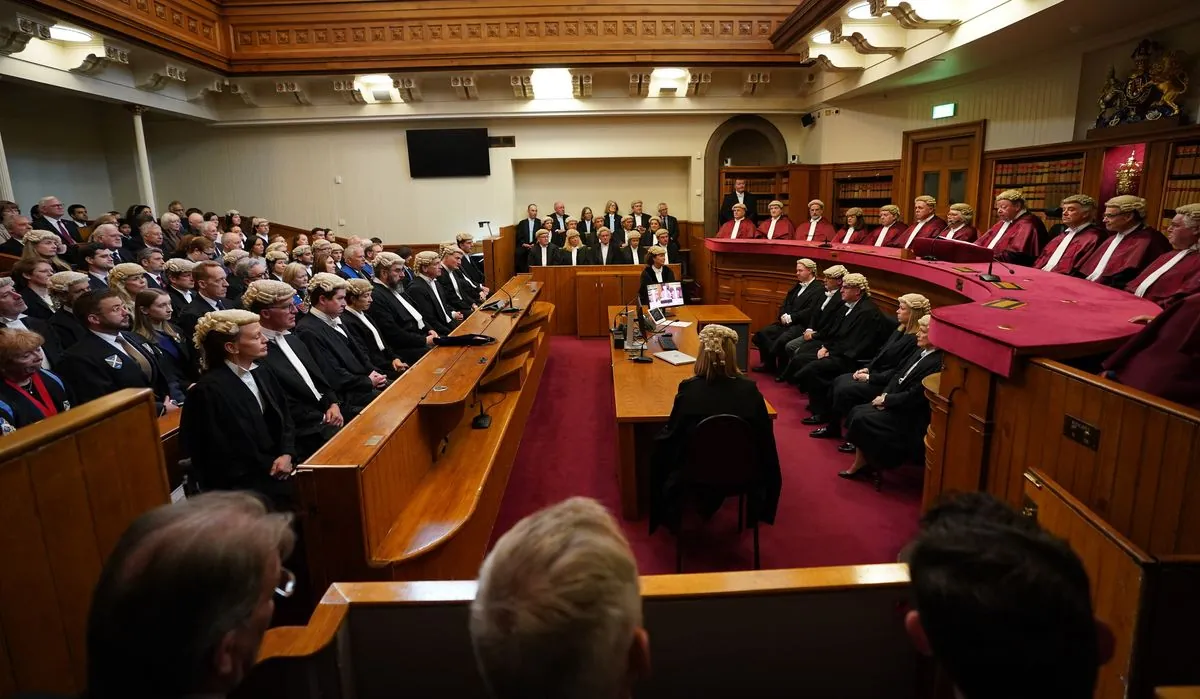Scotland's Alternative Justice Measures Hit Record High, Sparking Debate
Scotland sees unprecedented rise in "diversion from prosecution" cases, bail supervision, and deferred sentences. Critics argue this approach weakens the justice system, while officials explore alternatives to address overcrowding.

Scotland's justice system is experiencing a significant shift towards alternative measures for suspected criminals, with recent data revealing record-high numbers of "diversion from prosecution" cases. In 2023-24, 3,400 such cases were recorded, marking a 28% increase from the previous year and the highest figure on record.
This approach, which typically involves referring suspects to social workers for support rather than court proceedings, aims to address underlying causes of criminal behavior. The strategy aligns with Scotland's unique legal system, which operates independently from the rest of the United Kingdom and has roots in Roman law.
Jo Farrell, Police Scotland's chief constable, has expressed support for expanding alternatives to prosecution. This stance comes amid concerns about the time officers spend giving evidence in court. The Scottish justice system, overseen by the Crown Office and Procurator Fiscal Service, has been exploring various options to manage caseloads and address underlying issues.
Critics, however, argue that this approach may be weakening the justice system. Russell Findlay, justice spokesman for the Scottish Conservatives, stated, "These shocking figures reveal that record numbers of crime victims are being failed by the SNP's deliberate weakening of Scotland's justice system."
The increase in alternative measures extends beyond diversion cases. Bail supervision cases and deferred sentences for convicted individuals have also reached record levels. These strategies, along with Community Payback Orders introduced in 2011, form part of Scotland's efforts to provide alternatives to short prison sentences.

Young offenders are particularly likely to receive alternative measures. In 25% of diversion cases, the individuals were 16 or 17 years old, despite this age group representing only 3% of the population aged 16 to 70. This approach aligns with Scotland's unique system of children's hearings for young offenders and the country's efforts to balance justice with rehabilitation.
In 2023, new guidance was published stating that teenage sex offenders could receive lessons on consent rather than facing prosecution. This decision has sparked debate, with some arguing it prioritizes offenders' interests over victims' justice.
The Scottish government's approach extends to young adults as well. Scottish courts have been instructed to treat criminals under 25 more leniently due to "brain immaturity." This aligns with Scotland's ongoing efforts to reform its justice system, including the introduction of summary sheriffs to handle less serious criminal cases.
These changes occur against a backdrop of prison overcrowding. In the summer of 2024, 477 prisoners were released early to alleviate this issue. John Swinney acknowledged that this measure had not fully resolved the problem, indicating that more alternatives to custody would be explored.
As Scotland continues to navigate these complex issues, the debate over the balance between alternative measures and traditional prosecution remains heated. The Scottish Sentencing Council, which provides guidelines for courts, will likely play a crucial role in shaping future policies as the country seeks to address crime while managing its prison population effectively.


































